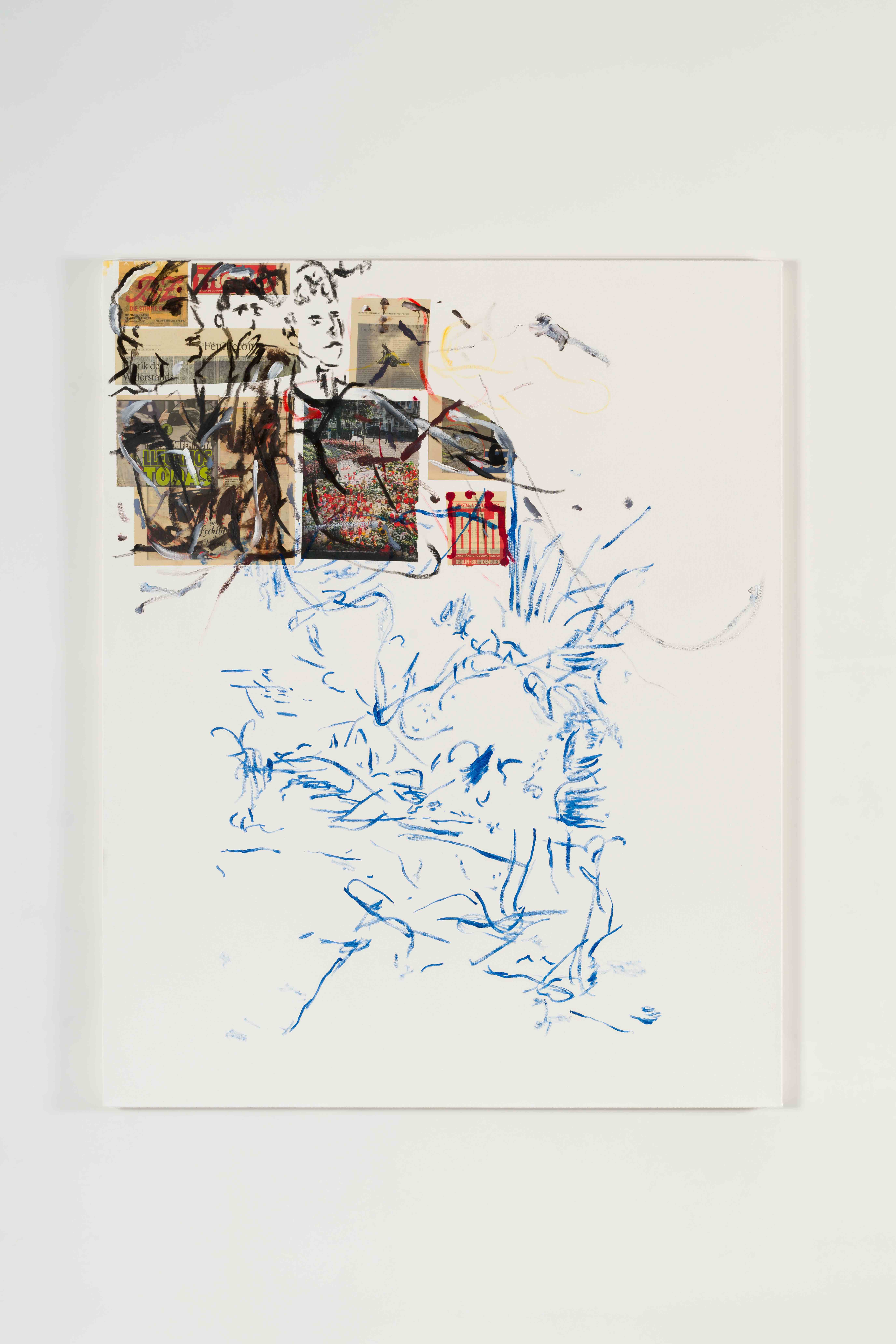
Pequod Co. is pleased to present Pinturas para perros. Durchhalten galore!, a project by Malte Zenses (Solingen, 1987), conceived in collaboration with Sperling.
This two-part exhibition showcases a body of work developed by Zenses during his residency between Mexico City and Naucalpan in the fall of 2024, with the first part taking place at Pequod Co. The exhibition will continue with the artist at Sperling's new location in Munich, as part of Various others.
Zenses’ work reflects his ongoing interest in abstraction, graphic dynamism, and poetic ambiguity. This project expands his visual and conceptual investigations, revealing the multiple layers that shape the identity of a place—a geography marked by personal experiences and their affective resonances.
The show is accompanied by a publication featuring a text by Elsa-Louise Manceaux.
Malte Zenses
Pt. 1
Pinturas para perros: Durchhalten galore!
Pequod Co. Mexico City
Opening April 11th
Pt. 2
Durchhalten galore! Pinturas para perros.
Sperling, Munich
Opening May 9th
“When you have to shoot, shoot. Don’t talk.”
Sergio Leone, The Good, The Bad and The Ugly
It’s 7 or 10 am in Mexico City. Around this time, it is common that inhabitants, cleaners and shopkeepers perform or witness the following gesture: that of splashing water on the sidewalk after brooming it, so the entrance of their house, shop or building doesn’t get too dusty.
Without knowing, people are caught in an act of binding, in this case dust with water, so that the particles—from cars, leaves, trees or even dog poops—no longer lift themselves up. As the actual binder is being replaced by water, the situation is temporary, destined to happen again in the afternoon, if not the next day.
These particles have somehow been lifted again for falling into that show.
The paintings of Malte Zenses (1987, Solingen), presented in the exhibition Pinturas para Perros at Pequod Co., realized during his residency in Naucalpan compel us to relate dust with pigments and the latter with dirt, placing the newcomer in the city, inside and outside the new studio, to bind pigments with not only water but also wood glue (a builder’s element), onto the raw or primed surfaces of the canvas.
The process becomes a one-person’s demonstration, pressing a finger onto the constant movements and noises that surround the practice.
Light and color aren’t an issue, but the question remains on how and what to apply. Adding and removing, washing and covering, is part of a fluent painter's language.
Beyond traces and signs, Malte’s gestures involve acts of taking and ripping elements from the streets: posters, adds and construction panels enter at play; the idea is to get out!
Did we catch you decontextualizing, Malte? Or is it precisely that you couldn’t escape from the context?
Is it about what’s happening on the canvas or everything around it?
Oil stains are the worst stains to wash and the most likely to stay. Somewhat, oil painting converts a stain into conservation.
A city is being conserved because it is being used and traversed; its condition is to constantly deteriorate and to age well at the same time.
The paintings suddenly face the paradox of conserving decay, so to witness contemporary speed, tying us all with a punchline.
You once titled this one “The Ugly Painting”.
The title of this other one ends with “You Don’t Matter!” as in ripping you apart will only build meaning for something else.
(I like it when painters leave us pondering whether they’re talking to us or to their own paintings.)
What does Zeitgeist painting mean in Mexico anyway? Does it have borders? Is it something that grabs the spirit of living commonly? Or of deteriorating together? Like anywhere else?
If I were to name the group of paintings presented by Malte in the show Pinturas para Perros, I’d say you could also come around it as the ‘No Bullshit Paintings’.
-Elsa-Louise Manceaux
Malte Zenses lives and works in Berlin. His paintings and sculptures expand the vocabulary of abstract painting and new realism by pointedly integrating the zeitgeist of his generation through autobiographical fragments. Zenses is represented by Sperling in Munich. Notable exhibitions include ALTE EICHEN, NEUE BILDER at G2 Kunsthalle, Leipzig (2024); Im Kugelblitz at Kunstverein, Heppenheim (2023); Im Regio 3, totale Verwirrung at Sperling, Munich (2020); and IN TYRANNIS at Kunstverein, Nuremberg (2017).
Malte Zenses in conversation with Elsa-Louise Manceaux here.
















